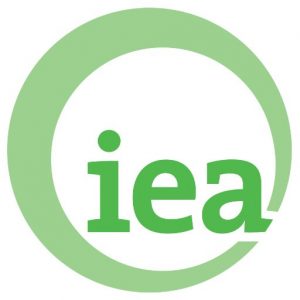 An International Energy Agency report has highlighted how the rise of decentralised and variable power generation, in particular through solar PV, combined with trends such as the growing role of electric vehicles, storage, district heating and demand response, offer opportunities for integrated local energy solutions.
An International Energy Agency report has highlighted how the rise of decentralised and variable power generation, in particular through solar PV, combined with trends such as the growing role of electric vehicles, storage, district heating and demand response, offer opportunities for integrated local energy solutions.
The report also reinforced the importance of sustainable energy in cities as the world grows steadily more urbanised.
Stockholm, Frankfurt and Seoul, among others, have been to the fore. These cities all aim to increase their energy supply from renewables, increase the number of electric vehicles and provide renewable heating and cooling solutions for buildings.
All three have set ambitious targets; Stockholm aims to be fossil-fuel free by 2040, Frankfurt seeks to achieve 100 per cent renewable energy supply by 2050, and Seoul aims to be 20 per cent self-sufficient in sustainable electricity by 2020.
A recent annual workshop of the IEA’s Renewable Energy Working Group held in Paris heard of the importance of a more flexible power system (through smart grids and demand response) where it’s made possible to have higher shares of variable renewables, for example through batteries or thermal storage integrated in district heating.
Meanwhile, electric vehicles and heat pumps reach their full potential when run on clean electricity. In addition, high levels of energy efficiency in buildings and industry are a must.
The workshop heard that it is at the city level where the different parts of the energy system can be linked together. The heat sector is a key focus of the strategies of Stockholm and Frankfurt, with both cities emphasizing the important role of their district heating systems.
A shift to decentralised renewables offers opportunities for new players in energy markets. Sonnen GmbH and Vivint Solar, for instance, said they offered consumers lower prices than existing utilities thanks to PV-based solutions that include battery storage or smart home energy management. While these new business models challenge the traditional large energy utilities, many of those such as ENEL Green Power, Iberdrola and ENGIE, said they too were pursuing similar innovations.
But while companies and cities are moving ahead, current market design and existing regulations are not yet ready for a more decentralized energy model. Fossil fuel subsidies, lack of a carbon price, diverse fiscal regimes or uneven cost sharing for electricity grid costs are all obstacles that mean there is no level-playing field. A more integrated approach to policy making is needed, linking the power, heat and transport sectors
Source: Decentralized Energy
IEA report identifies positioning of decentralized energy in facilitating renewables